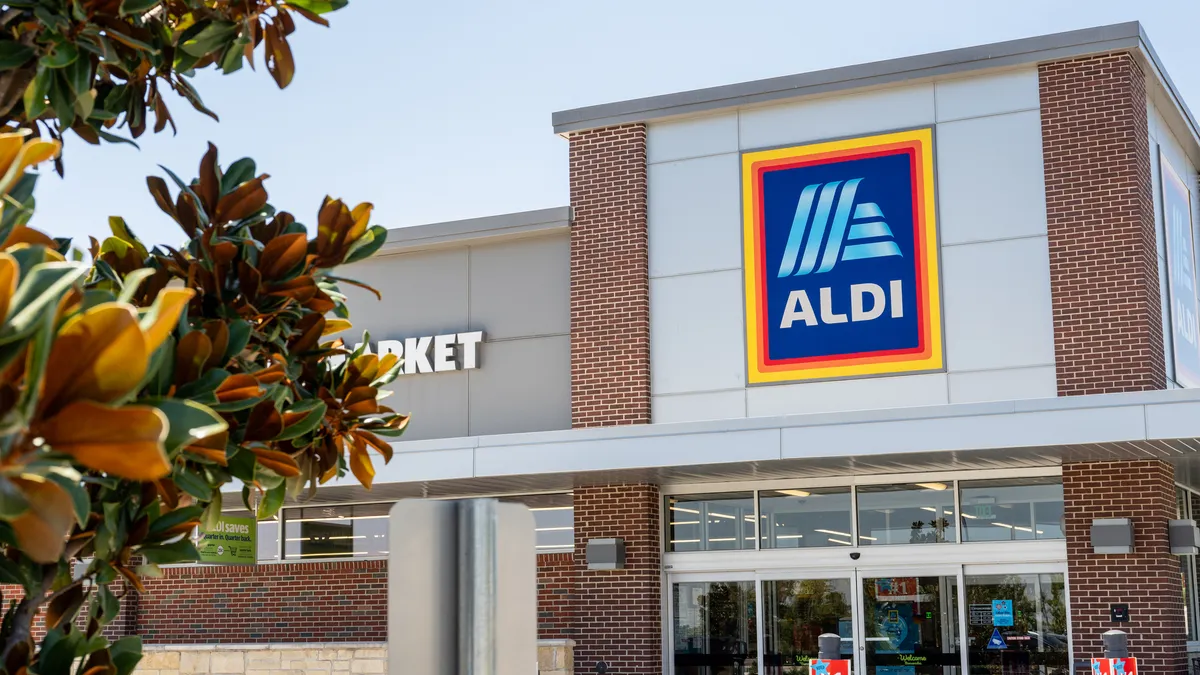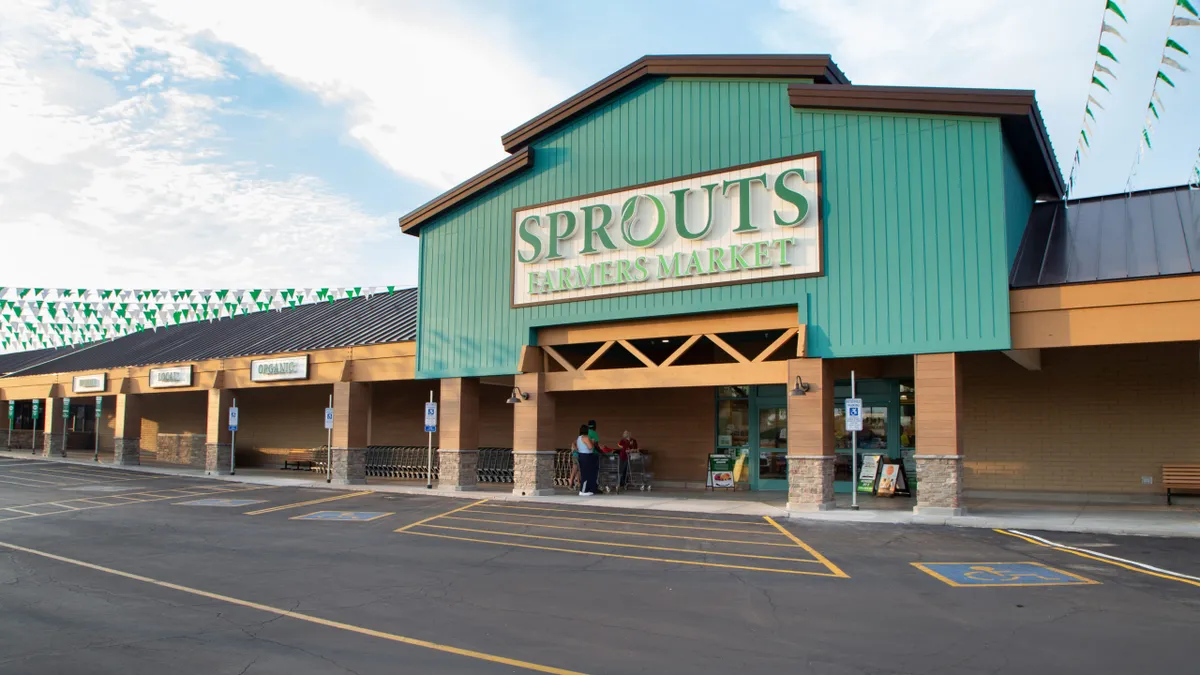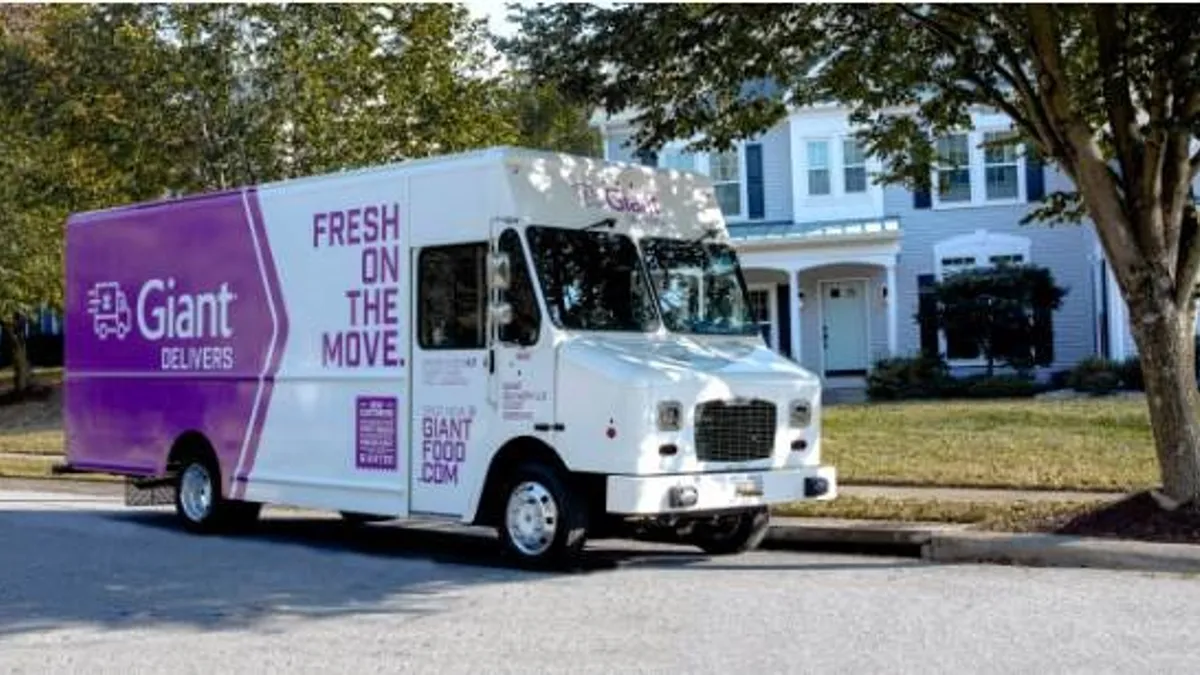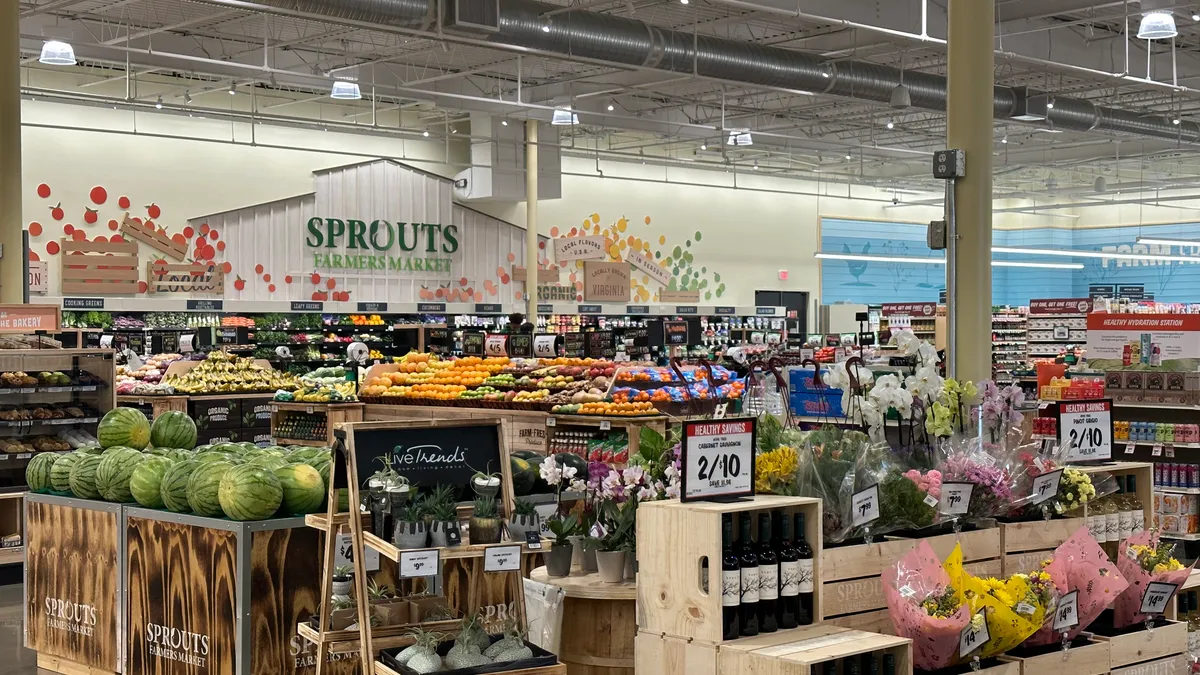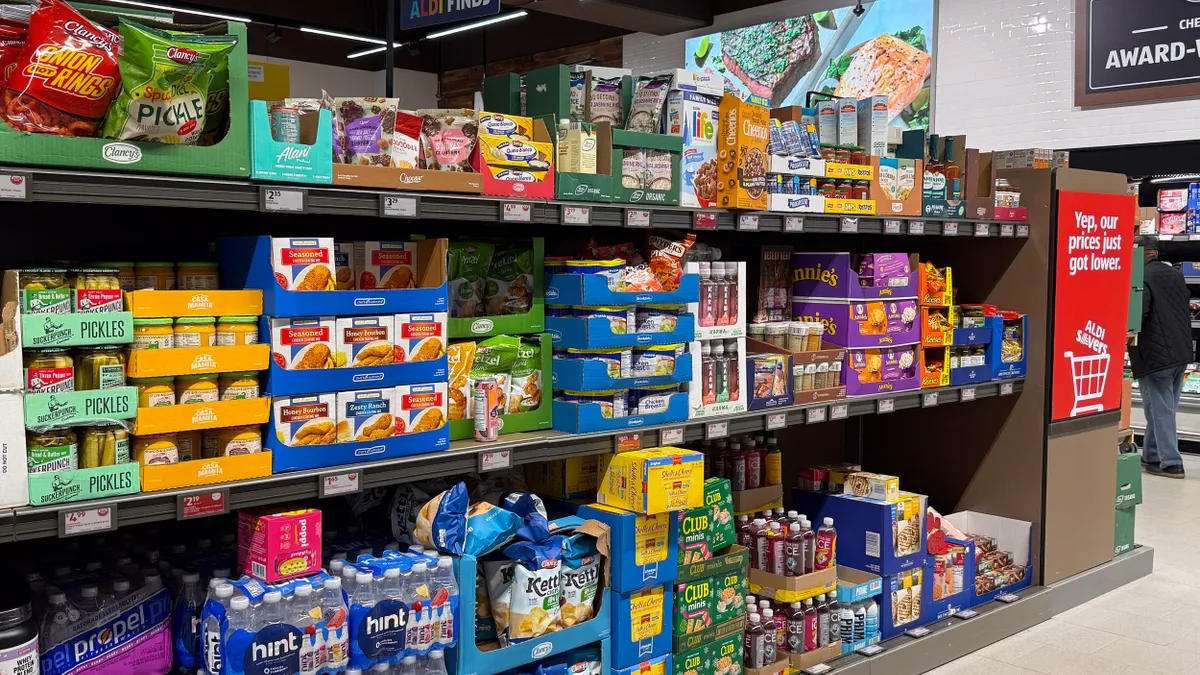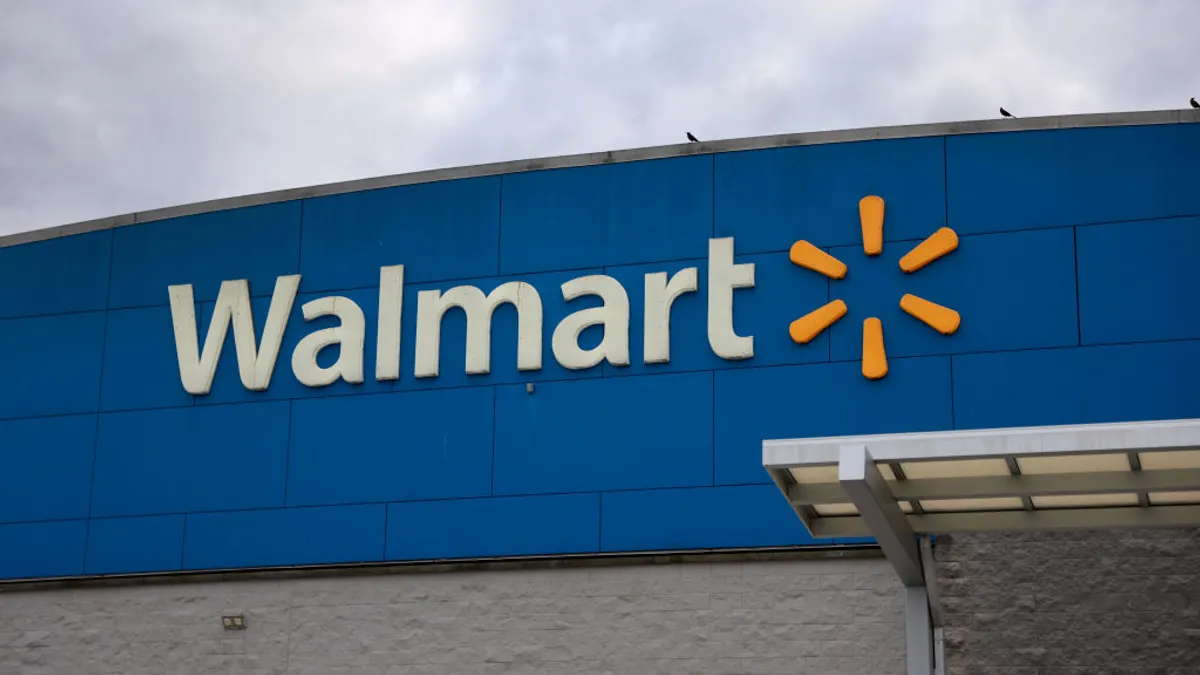The announcement on Wednesday that Southeastern Grocers will sell dozens of discount supermarkets to a rival chain presents a clear opportunity for the grocer to infuse energy into its iconic Winn-Dixie banner, industry analysts said.
But even as it slims down and brings in money through the sale to Food Lion of 62 Bi-Lo and Harveys stores in Georgia, North Carolina and South Carolina, Southeastern will need to gird for a tough battle with stronger rivals if it hopes to improve its prospects for success in the highly competitive areas where it operates, according to several retail experts who spoke with Grocery Dive.
A key issue for Southeastern is that the company has been limited in its ability to invest in Winn-Dixie in recent years because it has had to confront significant financial challenges, including its 2018 bankruptcy. That has forced Southeastern to close stores and caused it to fall behind competitors like Publix, which competes head-to-head with Winn-Dixie in key regions like Florida.
“Historically, Winn Dixie has not performed well against Publix on the critical levels of service, consistent inside-store conditions and facilities,” Mark Heckman, an industry consultant and former executive with Marsh Supermarkets, said in an email. “With the growing populations of Florida markets, [Southeastern] may feel the timing is right to make a concerted push.”
While now may be a good time for Southeastern to press forward with Winn-Dixie, the fierce competition poses a tough challenge, Neil Saunders, managing director of GlobalData Retail, said in an interview. The company will have to find a way to quickly deal with obstacles like the continued expansion of Aldi, the rise of Lidl, a growing focus by dollar stores on groceries, and the formidable costs associated with e-commerce, he said.
“There’s a whole range of headwinds that are stacked against Winn Dixie, and even a really strong company would find it difficult, so Southeastern have got to move really, really fast,” Saunders said. “This is the last-chance saloon for Southeastern. If they get this wrong with Winn-Dixie, that’s it, they’re done for. They’ll disappear.”
Southeastern is staking its future on Winn-Dixie
The good news for Southeastern is that the company has already made progress with Winn-Dixie, which has a strong brand founded on a nearly 100-year history, said Phil Lempert, founder of SupermarketGuru.com. Bi-Lo, which predates Southeastern, merged with Winn-Dixie in 2012.
Southeastern has switched from shutting down Winn-Dixie stores to laying plans for new locations. The company bought five Florida stores from bankrupt Lucky’s Market in February as that grocer went out of business and said it would turn them into Winn-Dixie locations. On May 28, Southeastern announced it would convert four of those locations along with four locations it acquired from Earth Fare, which also went bankrupt earlier this year, into Winn-Dixie stores.
Winn-Dixie has been updating its stores with enhanced branding as well as new service departments, natural and organic products and other trending selections. The company's latest ad campaign, which features the so-called "Winn Win Twinns," is a lighthearted, slickly produced series that's a departure from traditional supermarket advertising.
“I think Winn-Dixie is on the right path,” Lempert said in an interview. “They’ve achieved an awful lot in a relatively short time.”
Research shows strong population growth throughout Florida, creating an opportunity for Winn-Dixie to make up ground. However, competing chains have outmaneuvered the grocer in the past and show no signs of easing their attack. Publix has been long renowned for the types of in-store services and on-trend assortment that Winn-Dixie is now adding. It also offers online shopping chain-wide and is building out a new specialty format, Greenwise Market, that targets a younger generation of shoppers.
“Winn Dixie really needs to up its game if it wants to compete longer term against the likes of Publix,” Saunders said. "Publix has consistently invested in things like customer service, the store environment and own-brand products, and is regarded as a really strong grocer."
Walmart, another longtime competitor, operates more than 350 stores in Florida and has rapidly expanded its fresh grocery assortment, while new competitors like Aldi and Sprouts Farmers Market are spending millions building new stores and remodeling existing ones. Kroger is currently building a large automated e-commerce fulfillment center just west of Orlando, adding a new dimension to the state's evolving online grocery landscape.
The storied Bi-Lo brand, meanwhile, which dates to 1961, has weakened under Southeastern’s ownership, which led what had been a valuable asset to emerge as unwanted baggage instead, Saunders said.
“Bi-Lo was at one point quite a strong player, but because Southeastern hasn't invested in it, and because the market has become so much more competitive in terms of price and Southeastern doesn’t have the economies of scale to make it work, the asset has become somewhat of a liability,” Saunders said. “I think that Southeastern just thought that well, ‘we can’t really do much with Bi-Lo and it’s not a format that we see as being sustainable,’ so they wanted to get out of the lower-priced part of the market.”
Southeastern also intends to focus on its Hispanic-focused banner, Fresco y Más, which operates in South Florida. The company has added stores and converted some Winn-Dixie locations to the Hispanic format in recent years as spending power among Hispanic consumers has grown. Fresco y Más operates more than two dozen stores in and around cities like Miami, Orlando and Tampa.
“That’s been a really strong asset for them. This gives them the chance to ramp up that banner and figure out what the future is for Winn-Dixie,” said Tory Gundelach, vice president of grocery for Kantar Consulting, in an interview.
“This is the last-chance saloon for Southeastern. If they get this wrong with Winn-Dixie, that’s it, they’re done for. They’ll disappear.”

Neil Saunders
Managing Director, GlobalData Retail
Continuing Food Lion's momentum
Southeastern’s decision to unload Bi-Lo in order to concentrate on Winn-Dixie sets up a promising opportunity for Food Lion and its parent, Dutch supermarket powerhouse Ahold Delhaize, analysts said.
“I think [Food Lion] has shown they can take an existing format, refresh it and get good engagement from the community. I would have to think that’s part of the reason they’re taking on more stores at a time when we don’t see a lot of acquisitions happening,” said Gundelach. “This is a continuation of Ahold Delhaize looking for pockets of opportunity and then going after those pockets.”
Food Lion is in a better position than Southeastern to thrive in the value segment of the grocery market because of its financial strength and economies of scale — assets Southeastern lacks because it is so much smaller, said Saunders. “There’s lots of things that they can do to make these stores work that Southeastern couldn’t do and didn’t really have the energy to change.”
The Southeastern-owned locations Food Lion will add to its collection of more than 1,000 stores across 10 Southeastern and mid-Atlantic states come with the benefit of being in optimal locations to reach the customers Food Lion wants to reach, said Neil Stern, senior partner at McMillanDoolittle, a retail strategy and consulting firm.
“Because [the stores] have been in these markets for so long, they tend to have very strong locations embedded in key neighborhoods,” Stern said in an interview. “What Food Lion needs to do is retain the things that Bi-Lo was known for and good at,” like competitive prices and high-quality produce.
Food Lion has been on the rise in recent years as its investments in store remodels and other improvements have helped build on its reputation as a low-price leader. The company has done a good job with its customer-loyalty program and enhanced its fresh produce, deli and bakery departments, which could help it fend off rivals like Aldi that are not as strong in those areas, experts said.
But the strong competition it faces means Food Lion needs to move fast to put its stamp on the Bi-Lo and Harveys stores and build connections with customers whose everyday stores will be getting a new identity, said Burt Flickinger, managing director of Strategic Resources Group, a supermarket advisory firm.
Flickinger said the fact that Southeastern and Food Lion expect the transfer of the Bi-Lo and Harveys locations to take until next year leaves plenty of time for other retailers to capture the loyalties of customers losing the grocery supplier they are accustomed to. “If those stores are flapping around in the wind … the conversion [will be] highly problematic because the competitors will have already converted many of the loyal customers,” Flickinger told Grocery Dive.
Jeff Wells contributed reporting to this story.






